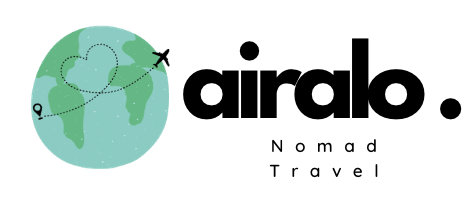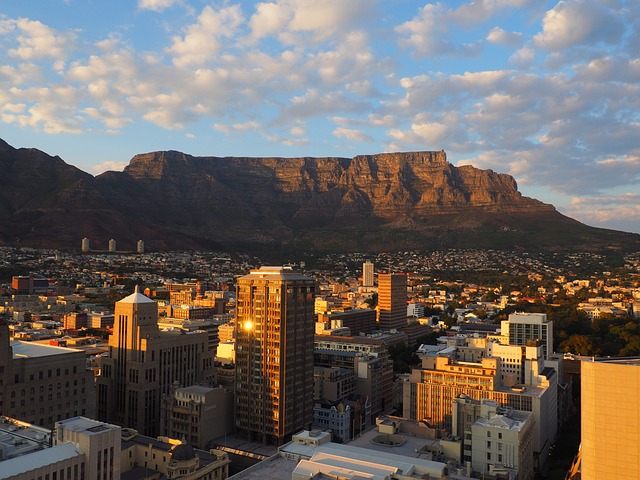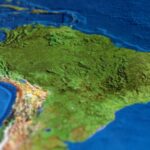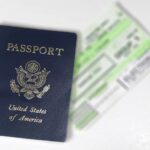
South Africa is a diverse country that has become an ideal destination for digital nomads and remote workers around the world with its rich culture, historical background, unique natural landscapes, and relatively low cost of living. In order to attract more international talent, the South African government launched the Digital Nomad Visa, which aims to provide professionals working remotely with a convenient and legal way to live and work long-term.
1. What is the South African Digital Nomad Visa?
The South African Digital Nomad Visa (or Remote Work Visa) is a visa designed for global remote workers that allows foreigners to legally reside in South Africa and work remotely. This visa was established to attract remote workers from around the world to promote economic growth in South Africa, enhance technological innovation, and promote cultural exchange and global cooperation.
1.1 Purpose and background of visa
The South African government has several objectives behind the launch of the digital nomad visa. First, with the development of globalization and the rise of remote working trends, South Africa hopes to attract highly skilled talents and freelancers to work in South Africa by providing a long-term residence option, thereby driving the development of local technology, innovation, finance and creative industries. . Secondly, as a country with rich natural resources and unique culture, South Africa provides digital nomads with a new way of life through this visa, allowing them to better integrate into the local society.
In addition, South Africa’s digital nomad visa is intended to drive growth in tourism, business activities and local businesses by increasing the movement of international people. This visa attracts not only technicians, but also freelancers such as writers, designers, artists, etc., so it has a diverse appeal.
1.2 The biggest advantages of visa: long-term stay and simplified process
One of the biggest advantages of South Africa’s digital nomad visa is that it allows the holder to live in South Africa for up to 12 months or more. Unlike common short-term residence visas in other countries, digital nomad visas are usually valid for one year and can be renewed as needed, avoiding the cumbersome process of digital nomads needing to reapply for a visa every year. For remote workers, this provides greater flexibility and convenience, allowing them to plan their work and lives long-term without the stress of visa expiry.
This long-term residence policy is especially suitable for remote workers who want to live a leisurely and stable life in South Africa. For example, digital nomads in Europe and North America can enjoy a lower cost of living, a more pleasant climate, and abundant natural landscapes while continuing to work their remote jobs through a South African visa.
1.3 Diverse working and living environments
South Africa’s diverse urban and natural environments make it an ideal work and life destination for digital nomads. Cities such as Cape Town, Johannesburg, and Durban are not only business and cultural centers, but also have modern office spaces, shared office centers, and high-speed Internet, which can fully meet the work needs of digital nomads. Many cities in South Africa have complete infrastructure, including high-speed broadband networks and flexible workspaces, ensuring that remote workers can work efficiently and comfortably.
In addition to the city’s modern facilities, South Africa’s unique natural landscape is also one of the important factors attracting digital nomads. Whether it’s Cape Town’s beaches, the beauty of Table Mountain, or its vast grasslands and abundant wildlife, South Africa offers an attractive living environment for remote workers. These attractions and natural resources allow digital nomads to enjoy the opportunity to have close contact with nature, engage in outdoor activities and leisure entertainment, and balance work and life after work.
1.4 Stable and flexible life rhythm
South Africa’s digital nomad visa offers remote workers a more stable pace of life than frequently renewing short-term visas. Digital nomads can avoid interruption of work or life due to visa expiration and can focus on personal career and career planning. In addition, South Africa’s low cost of living and high-quality living environment allow digital nomads to enjoy a higher degree of freedom in life without sacrificing quality of life.
South Africa’s visa system provides flexibility for digital nomads – if you plan to stay in South Africa for a year and continue to work, the visa can be renewed after it expires, without the need to waste time and energy on visa renewal. South Africa’s visa system certainly provides an easier path for digital nomads than having to apply for a visa every few months or leave and re-enter.
1.5 Diversity suitable for global remote workers
South Africa’s digital nomad visa not only attracts professionals in the traditional IT and technology fields, but also includes workers in various creative industries, such as writing, design, digital marketing, consulting and other freelancers. South Africa’s rich cultural background and diverse social environment are ideal for professionals who create and work remotely on a global scale. Whether entrepreneurs, artists or academics, South Africa provides an ideal place for these groups to balance career and life.
2. Application requirements for South Africa’s digital nomad visa
Although the process of applying for a South African digital nomad visa is relatively simple, there are a series of clear requirements that applicants must meet in order to ensure that they can successfully live in South Africa and work remotely. The following are detailed application conditions and required materials:
2.1 Prove earning ability
To ensure that applicants are self-sufficient and avoid dependence on South Africa’s public services, the South African government requires applicants to provide evidence of adequate income. Generally speaking, applicants must demonstrate that their monthly income meets the minimum standards set by the South African government. This standard is usually to ensure that applicants can cover their own living expenses, including accommodation, food and basic living expenses, without relying on the local welfare system while in South Africa.
Common income verification documents include:
- bank statement: Applicants need to provide bank statements from the past three to six months to prove the stability of their income source. Typically, bank statements need to show regular income (such as salary or project payments) and bank balances.
- Employment contract or freelance contract: If the applicant is an employee or freelancer working remotely, an employment contract or project contract can be used as proof of income. These contracts need to state the nature of the work, payment terms and expected earnings.
- Tax returns or financial statements: Freelancers or business owners may need to provide recent tax statements or company financial statements to demonstrate their income levels.
The South African government generally requires applicants to earn a certain monthly income, which may vary depending on the applicant’s nationality and lifestyle, but will generally range from $1,500 to $2,000 per month. To ensure that the application is not rejected, applicants need to verify in advance and ensure that their income meets the requirements.
2.2 Prove the nature of remote working
Applicants must be able to demonstrate that the work they perform fully meets the definition of remote work. This means that their work does not need to be performed locally in South Africa and they do not need to employ local staff. To prove this, applicants may need to submit the following documents:
- Employment contract or freelance contract: If the applicant is employed by a company or has a long-term relationship with a client, it should be clear in the contract that the work location is remote and not within South Africa.
- Invoice or payment record: For freelancers, providing payment invoices, receipts or bank transfer records from clients can prove that they are working online and do not require a local office location.
- Work item description: Applicants can also provide a detailed description of the work project, including project cycle, tasks and work content, to prove that the work is completed through remote technology.
The core of this requirement is to ensure that South African digital nomad visa applicants do not directly compete with the local job market in South Africa and thus do not affect the local labor market.
2.3 Health Insurance
Applicants must provide proof of valid health insurance when applying for a South African digital nomad visa. The South African government requires all expats, especially remote workers who are staying for a long period of time, to purchase health insurance that covers their medical needs while in South Africa. This insurance must meet the following criteria:
- Covers medical expenses: Insurance should cover at least hospitalization, emergency room treatment, and basic medical services to deal with unexpected health problems.
- Insurance plans for expats: Applicants are required to purchase health insurance applicable to foreign residents to ensure that they have access to medical services rather than relying on South Africa’s public health system. The insurance needs to clearly define its coverage in South Africa and provide medical services within South Africa.
Many international insurance companies offer health insurance plans for digital nomads, and applicants can choose the right insurance product based on their personal needs.
2.4 No criminal record
In order to ensure that all applicants entering South Africa meet social security requirements, the South African government requires applicants to provide a certificate of no criminal record. This certificate needs to be obtained from the relevant legal agency in the applicant’s home country or current country of residence, proving that the applicant has not participated in any criminal offense. Specific requirements may include:
- Certificate of no criminal record issued by the national or local public security agency: Applicants need to apply for a certificate of no criminal record from the public security department of their country, which usually requires providing fingerprint samples and detailed personal information.
- Application timeliness: The criminal record certificate is usually valid for three to six months, so applicants should ensure that the criminal record certificate provided is within the validity period when submitting the visa application.
2.5 Other supporting materials
In addition to the above main application requirements, applicants also need to provide the following supporting materials:
- passport: Applicants must hold a valid passport, and the validity period of the passport should be at least six months longer than the time of visa application.
- visa application form: Applicants need to fill in a complete visa application form and provide necessary personal information, contact information, planned stay time, etc. as required.
- visa fee: Applicants are also required to pay visa application fees, which typically vary depending on the type of application, length of visa, and the applicant’s nationality. The application fee can be paid through the South African embassy or consulate or the official visa platform.
- photo: According to the requirements of the South African Consulate, applicants also need to provide several recent passport photos for the production of visa documents.
3. Application process for South Africa’s digital nomad visa
The process of applying for a South African digital nomad visa is relatively straightforward, but applicants are required to submit all necessary materials in strict accordance with the regulations and go through certain approval procedures. The following are detailed application steps:
3.1 Prepare materials
The first step in applying for a South African digital nomad visa is to prepare the relevant materials. Ensuring that all materials meet the requirements of the South African Immigration Service is crucial for a smooth application. Specific required materials include:
- passport: Applicants must hold a valid passport that is valid for at least six months longer than the planned period of residence in South Africa. The passport must have at least two blank pages for visa stickers.
- Proof of income: Applicants need to provide bank statements from the past three to six months, or provide employment contracts, freelance contracts, etc. to prove their income level from remote work. Generally speaking, applicants’ monthly income should meet the minimum income standard set by the South African government, usually $1,500 to $2,000.
- health insurance: The South African government requires all digital nomad visa holders to provide health insurance suitable for foreigners to ensure they have access to medical services while in South Africa. Insurance must include hospitalization, emergency services and medical coverage for common illnesses.
- No criminal record certificate: Applicants need to apply for a non-criminal record certificate from the public security department of the country where they are located to prove that they have no criminal history. At the time of application, the certificate is usually valid for three to six months.
- Work contract or supporting documents: Applicants need to provide contracts or project description documents related to remote work to prove that their work does not need to rely on the local labor market in South Africa. Specific documents include employment contracts, freelance contracts, client invoices or work project descriptions, etc.
- visa application form: Fill in and submit a complete visa application form. The form must fill in the applicant’s personal information, planned length of stay, nature of work, etc. in detail.
- visa fee: Applicants are also required to pay a visa application fee, which may vary depending on nationality and application type. Fees can usually be paid online or through a South African embassy or consulate.
Ensuring the accuracy and completeness of your materials is critical, as any missing or non-compliant materials may result in your application being delayed or rejected.
3.2 Submit application
After preparing the materials, the applicant can choose two ways to submit the visa application:
- Apply online: The South African Immigration Service provides an online application platform through which applicants can upload all required documents and submit their application online. The online platform is usually suitable for applicants who are well prepared and have complete materials. After submission, the application progress can be viewed in real time. Applying through an online platform also makes paying for your visa more convenient.
- Application at embassy or consulate: If the applicant’s materials require further review or there are questions, the applicant can choose to submit the application directly to the South African embassy or consulate abroad. The advantage of submitting through the embassy or consulate is that the consulate staff will provide face-to-face guidance to help ensure the accuracy and completeness of the application materials.
Regardless of which method is chosen, applicants must ensure that all documents provided are authentic and in compliance with regulations, any inaccurate or forged documentation will result in the application being rejected.
3.3 Waiting for approval
After submitting the application, the applicant needs to wait for the South African Immigration Service to approve the application. The approval process usually takes 4 to 6 weeks, but may vary based on application volume, completeness of application materials and other factors. During the approval process, the Immigration Service may contact the applicant to request additional information or materials, particularly in the following circumstances:
- Incomplete material: If the application materials are missing or incorrect, the Immigration Bureau will ask the applicant to supplement the necessary documents.
- additional review: In some special circumstances, the South African Immigration Service may need more time to conduct a detailed review of the applicant’s background. This may include further verification of the source of income, or verification of the legality of a work contract.
- Supplementary interview: In some cases, the USCIS may require applicants to conduct an interview to confirm the nature of their remote work or to further verify their background.
To avoid unnecessary delays, applicants should ensure that all documents are thoroughly checked before submission and respond promptly to any additional requests from the Immigration Service.
3.4 Obtaining a visa
Once the visa application is approved, the applicant will receive a visa approval notification from the South African Immigration Service. At this time, the applicant can follow the instructions in the notice to collect the visa at the South African embassy or consulate or receive the visa by mail. After the visa is approved, the applicant can follow the following steps to make follow-up arrangements:
- Confirm visa information: After receiving the visa, the applicant needs to carefully check the information on the visa, including validity period, personal information, etc., to ensure it is correct. If you notice any problems, you should contact the Immigration Department immediately.
- Entering South Africa: Applicants holding a digital nomad visa can legally enter South Africa and live and work remotely in the country according to the validity period of the visa. Typically, the visa will allow the holder to stay in South Africa for one year and may be renewed subject to certain conditions being met.
4. Advantages of the South African Digital Nomad Visa
The South African Digital Nomad Visa offers a range of unique advantages to remote workers, allowing digital nomads to enjoy a high quality of life, low cost of living and rich social networks in this vibrant land. Here are some of the key benefits of South Africa’s digital nomad visa to help remote workers better understand the appeal of this visa.
4.1 High-quality life experience
South Africa attracts countless tourists and settlers with its unique natural landscape and diverse cultural background. For digital nomads, there is an attractive lifestyle on offer:
- Beautiful beaches and natural attractions: South Africa’s beaches such as those in Cape Townblechten bay(Bloubergstrand)和camps bay(Camps Bay) is a world-famous resort with tranquil coastline and stunning scenery. Remote workers can enjoy sunbathing on the beach, surfing or water sports after work. also,Kruger National Park(Kruger National Park) and other nature reserves provide wildlife lovers with the opportunity to get up close and personal with nature.
- Rich urban and cultural activities: As one of the largest cities in South Africa, Johannesburg is not only a business and financial center, but also a city full of creativity and vitality. With an abundance of art galleries, concerts, theater performances and cultural festivals, digital nomads can enjoy a variety of cultural experiences outside of work.
- suitable climate conditions: South Africa’s climate varies from region to region, but most places have a warm and pleasant climate, especially in winter, with many areas experiencing milder temperatures suitable for outdoor activities and recreation.
4.2 Low-cost life
Compared with developed countries such as Europe and the United States, the cost of living in South Africa is significantly lower, especially for remote workers, which means that you can save money while enjoying a high quality of life. Here are a few ways South Africa’s cost of living is low:
- Accommodation fee: Whether in Cape Town, Johannesburg or other cities, accommodation prices in South Africa are much lower than in big cities in Europe and the United States. Especially in smaller cities and rural areas, digital nomads can find cost-effective apartments, villas or shared accommodation. South Africa has an abundance of housing options for those who value quality of life while still wanting to save money.
- daily expenses: The cost of food, transportation and public facilities in South Africa is also much lower than European and American standards. Eating out and buying daily necessities are much cheaper than in European and American cities, making it suitable for remote workers who live for a long time.
- transportation: Although South Africa’s public transportation system is not as complete as some big cities, the overall transportation cost is relatively cheap. Digital nomads can choose to rent a car or use local taxi services, which is convenient and economical. South Africa has a good road transport system, especially for those traveling by car.
4.3 Connecting the global Internet environment
South Africa’s Internet infrastructure is among the leading in Africa, especially in major cities, where digital nomads can enjoy high-speed and stable network connections:
- Broad Internet coverage: Fast wireless internet connections are available in most cities, towns and tourist attractions. South Africa’s big cities arecape town、johannesburgandDurbanWi-Fi networks in places like this are great for remote working and online meetings.
- Efficient Internet Service Provider: South Africa’s major internet service providers such asTelkom(Telkom South Africa)、MTN(MTN South Africa)andVodacom(Vodacom) provides stable 4G and 5G network services. High-speed wireless networks can be found in almost all co-working spaces and cafes in the city, allowing digital nomads to work efficiently.
- Modern office environment: In addition to internet connections, there are an increasing number of coworking spaces in South Africa, and many are equipped with modern facilities such as conference rooms, private offices, printing and copying equipment, etc., suitable for remote workers who require a flexible working environment. You can refer to some shared office spaces in major cities, such aswould rule(Regus South Africa)andWeWork(WeWork South Africa)。
4.4 International social circle
South Africa is a multicultural country with a rich social fabric and diverse backgrounds, which provides digital nomads with many social and professional development opportunities:
- Multicultural integration: South Africa’s society is multi-racial and multi-cultural, and is highly tolerant and open. Whether they are white, black, Indian or other ethnic groups, digital nomads can find people with the same background or interests as themselves in South Africa, forming cross-cultural friendships and professional connections.
- digital nomad community: The digital nomad community in South Africa is growing, with many cities such ascape townandjohannesburg, all have dedicated communities for digital nomads and remote workers. By participating in these communities, you can not only obtain remote working resources, but also participate in regular social activities, lectures and discussions to broaden your network and promote career development. For example, Cape Town’sRemote Work Hub(Remote Work Hub) and Johannesburg’sThe Workary(The Workary) and other places that offer support and resources for remote workers.
- Entrepreneurship and cooperation opportunities: South Africa’s diverse environment has inspired a significant amount of entrepreneurial activity, particularly in the creative industries and technology sectors. As a remote worker, you can participate in various collaborative projects, network with local and other international companies, and expand career development opportunities.
5. Challenges of South Africa’s Digital Nomad Visa
While South Africa’s digital nomad visa offers remote workers a wealth of opportunities and unique life experiences, there are still some challenges to be aware of while enjoying these benefits. Here are the main challenges digital nomads may encounter during application and residency:
5.1 Security issues
The security situation in South Africa varies from region to region, and some cities and regions have higher crime rates, especially in some poor areas and some communities in large cities. While South Africa’s major cities like Cape Town, Johannesburg and Durban have many safe areas for foreigners to live in, it’s important for digital nomads to choose the right place to live. Here are some security issues to consider:
- high crime area: Certain areas, such as some urban areas in Johannesburg and some slums in Durban, may have problems with theft, robbery and violent crime. When choosing a place to live, digital nomads should try to avoid these high-risk areas and give priority to residential areas or shared office spaces with higher security.
- crime prevention: To ensure personal safety, digital nomads can choose to live in gated communities, apartments or hotels with 24-hour security. It’s also important to know local safety advice, emergency contact details and avoidance of dangerous areas. Higher crime rates in major cities make vigilance and prior security preparation important tasks for digital nomads.
- emergency response system: Although the emergency response system in big cities is relatively mature, and the emergency service number in South Africa is 10111, in some remote areas, the response of emergency services may be slower. Therefore, digital nomads living in remote areas should learn about local safety resources and emergency contacts in advance.
5.2 Medical facilities
Although South Africa’s large cities have relatively advanced medical facilities, in some more remote areas, the accessibility and quality of medical services may not be comparable to those in developed countries. Therefore, remote workers need to pay special attention to the following points when residing in South Africa for an extended period of time:
- Cities vs. remote areas: Cities such as Cape Town, Johannesburg and Durban generally have well-established medical facilities, with high-level hospitals, clinics and professional doctors. However, in some rural or remote areas, medical resources are relatively scarce and may not be able to provide the same level of medical services as in large cities. Therefore, digital nomads need to take this into consideration when choosing a place to live, and try to choose big cities or areas with relatively complete medical facilities.
- Importance of health insurance: Medical care in South Africa is expensive, especially for foreigners. Without adequate insurance, medical expenses can become a burden. For this reason, digital nomads need to ensure that they have purchased health insurance that meets the requirements of the South African government when applying for a South African digital nomad visa, covering emergency medical care, hospitalization, surgery and other medical services.
- Limitations of the medical system: Although South Africa’s medical system performs better in big cities, the overall medical level still lags behind some developed countries. Medical facilities may not be modern or well-equipped, especially in rural areas, and medical resources may be unevenly distributed. Digital nomads are advised to learn more about South Africa’s medical services before traveling to the country, and make sure their health insurance can provide support in the event of an emergency.
5.3 Language barrier
South Africa is a multilingual country, althoughEnglishIt is one of the official languages and is widely used in business and government affairs, but local language differences in different regions may become certain language barriers, especially in some non-English-dominated areas. Here are some challenges that language barriers can pose:
- multiple official languages: South Africa has 11 official languages, includingZulu、Afrikaans、Xhosaetc., these languages still play an important role in daily life and communication. In some places, especially rural areas, the use of English may not be as common as in cities. This may impact communication with local residents, service providers or businesses.
- Language affects social and professional communication: While most South Africans speak English, in certain areas and smaller cities it is more common to communicate in the local language. Digital nomads who are unfamiliar with these languages may have difficulty interacting with locals, especially in non-English-dominated communities and work environments.
- Adapt to local culture and communication styles: In addition to language barriers, communication styles in South Africa may also differ from other countries. South Africans are generally direct and forthright, but they also place a high value on politeness and respect. For digital nomads, understanding and adapting to local cultural differences, especially ways of socializing and working in different language and cultural contexts, will help reduce misunderstandings and promote smoother communication.
in conclusion
The South African Digital Nomad Visa provides an attractive opportunity for global remote workers, not only simplifying the process of long-term residence and work, but also providing stable living conditions and a flexible working environment for digital nomads. Through this visa, applicants can continue to work remotely around the world while enjoying South Africa’s unique natural landscape and cultural atmosphere. South Africa’s abundant resources, low cost of living and diverse work and life options make it an ideal destination for digital nomads.
The application process is relatively simple, but applicants are required to prepare necessary materials, including proof of income, health insurance, and no criminal record. By meeting these conditions, digital nomads can gain legal long-term residency and take full advantage of what South Africa has to offer. For remote workers looking to find the ideal work-life balance on the continent, South Africa is certainly a destination worth considering.





